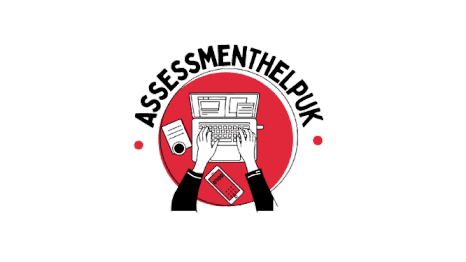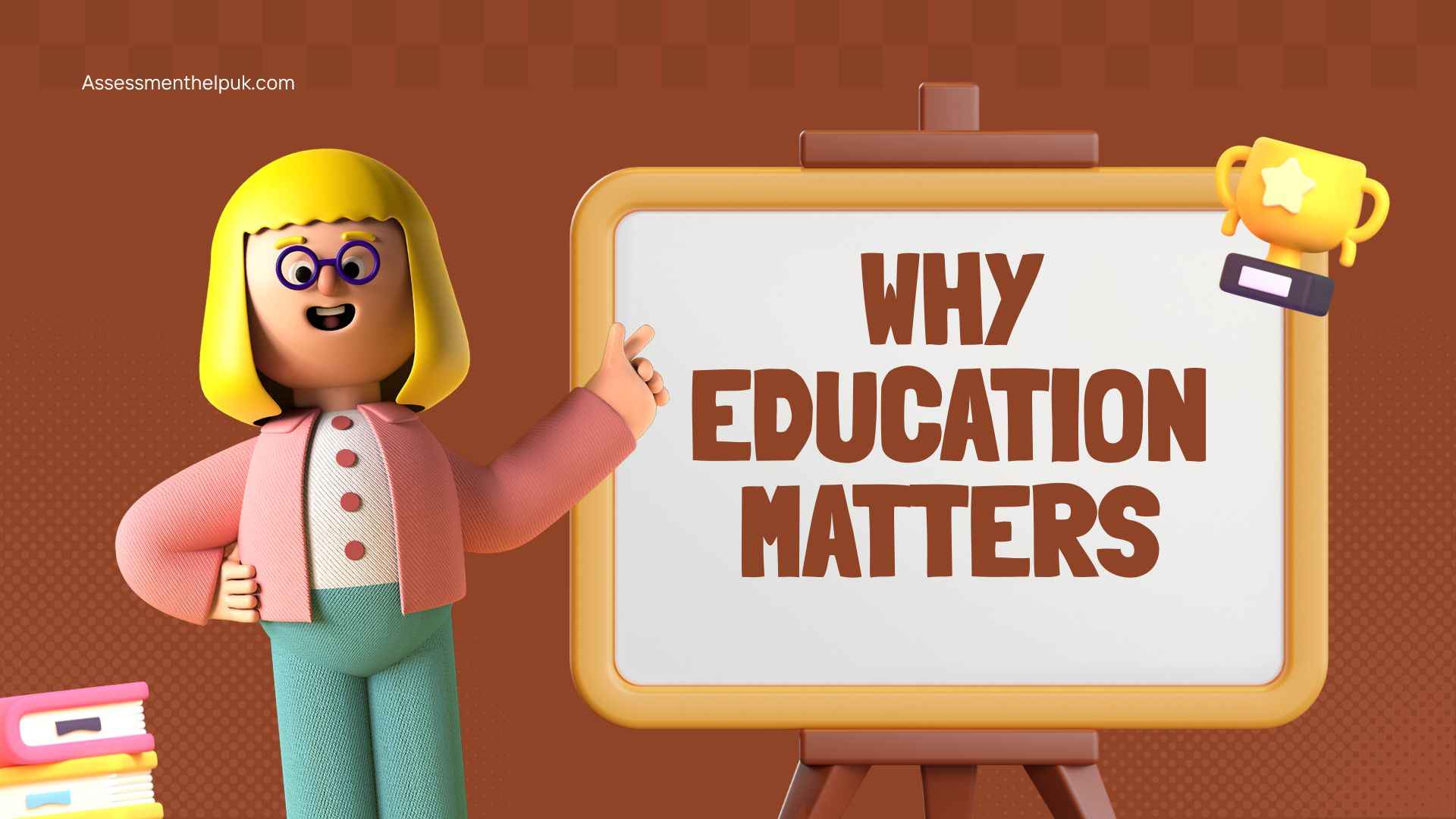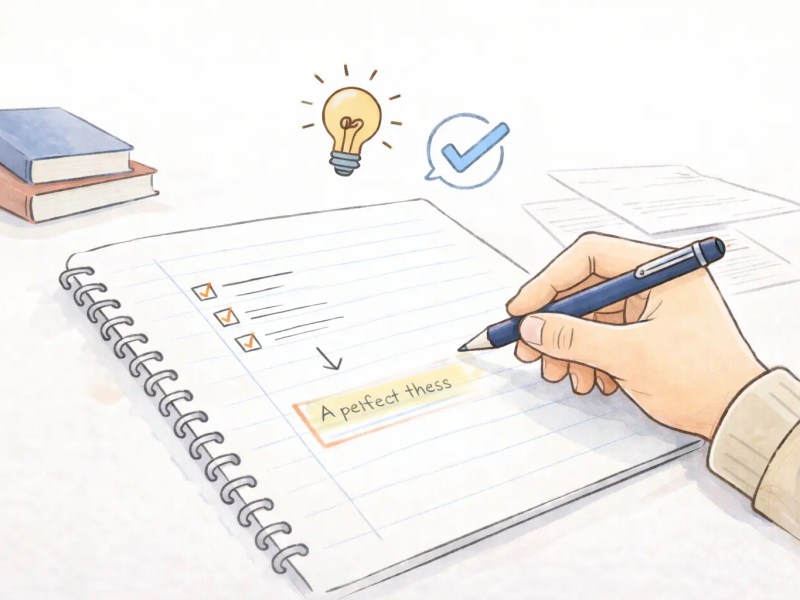A Professional Lens on Academic Integrity
Nearly over a decade of advising and marking various coursework, one pattern hasn’t changed: the students who truly understand academic integrity are the ones who go on to thrive, not only in their degrees but in their careers too. Academic integrity isn’t about administrative hurdles or a plagiarism rule; it’s the basic foundation for a credible scholarship. It signals to your lecturers, future employers and peers that your ideology and evidence are weighted and trusted. So when you write or research with honesty, you’re making a reputation for reliability that will follow you long after graduation.
Why Academic Integrity Matters More Than Ever
There’s no doubt about the fact that the digital revolution has changed the dynamics of the way students access and produce information. Essay mills, file-sharing groups, and AI tools have created an environment where cost-cutting seems to be easier, and where detection is much tougher than ever. Most of the UK universities now run every assignment through various layers of similarity and authorship checks.
In this atmosphere, integrity has shifted from being a compliance issue to being a core graduate skill. Students who have developed positive attitudes of attribution, transparency and original thinking now stand out as the future professionals who can be trusted with intricate projects and sensitive data.
Beyond “Avoiding Trouble” Real-World Stakes
Violating academic integrity isn’t private; those are minor missteps. They can lead to formal disciplinary action, potential expulsion, revoked offers, and consequences that are unbearable! In regulated sectors such as law, accountancy, and medicine, misconduct records may rise in background checks and affect licensing.
Even in non-regulated fields, a reputation for unreliable work can close some of the best opportunities. Conversely, demonstrating integrity signals to employers that you are capable of tough analysis, sound judgement and ethical decision-making, which most graduate recruiters look for.
How This Blog Will Help You Act on It
This article is structured to show you why integrity is a competitive advantage, not just a rulebook. By the end, you’ll understand not only the regulations but the real reasons why academic integrity is your most valuable asset at university and beyond.
We’ll cover:
- How academic integrity supports genuine learning and deeper critical thinking.
- the most common new pressures and pitfalls to watch out for;
- practical ways to research, write and collaborate ethically
- And how living by these practices strengthens your long-term reputation.
Moving from Rules to Values
Most of the undergraduates first meet academic integrity as a dry list of dos and don’ts in a course handbook. Yet behind those rules lies a set of values, honesty, trust, fairness, respect, and responsibility, that underpin every serious discipline. These aren’t your regular virtues; they are the bedrock of scholarship and professional credibility.
So when you submit a piece of work, your tutors aren’t just checking if it’s original or not, they’re looking for the sources you have engaged with, complete transparency, developed your own narrative and could justify your decision. Ask yourself: Am I approaching this assignment as a hoop to jump through, or as a chance to practise the ethical standards of my future profession? This single question changes the way you plan and write.
Authentic Learning Depends on Integrity
The true purpose of a degree isn’t just to reproduce textbook content but to develop your own critical thinking, analysis, and communication skills. Copy-pasting, buying essays, or even misrepresenting data can create a deceptive effect of competence, but it steals away the skills you’re paying attention to.
For someone who has marked hundreds of dissertations, essays, or reports, I can immediately tell when a student struggled with a concept and when they’ve tried to outsource it. The former not only earns higher marks but also prepares you for the messy problems of a professional life where there are no answer keys. So you need to have some questions in mind while drafting, such as: Does this represent my understanding, or am I hiding behind someone else’s words?
Academic Integrity and Research Skills
Every time you cite correctly, paraphrase with care, or even analyse rather than reproducing, you’re practising the same evidence-handling behaviours that are used by professionals in business, law, health, or even in engineering. Such habits translate into stronger proof that presents much clearer reports and more trustworthy recommendations. Seeing your university assignment as training for such demands can turn academic integrity into a career advantage rather than an academic burden.
Building Your Reputation Early
For students, the rapidity at which reputations evolve in a department is often underappreciated. Lecturers speak to each other, and each professor has a memory for students who display hard work and creativity. As an undergraduate, this background will impact not only the quality of feedback you receive but also your eligibility for opportunities, like research assistantships, as well as the robustness of any letters of reference, which depend on a lecturer’s recollection of your work when you ask if they can write a letter for you after the semester is over.
Acting with integrity from the first assignment is a basis for a positive reputation that lasts longer than the end of the module, a hidden, useful component when applying for jobs, internships, or postgraduate study.
Why Today’s Students Face a Different Landscape
Almost a decade ago, academic integrity breaches were mostly about copying from a textbook or forgetting to cite. Today, the environment seems to be far more complex; students juggle their part-time work, family responsibilities and a consistent stream of information. Add to this the rise of contract-cheating sites and AI tools, and you’re good to go with high-risk terrain. Such pressures don’t excuse misconduct, but they do explain why more students stumble. Understanding these forces helps you to avoid becoming one of the statistics.
Common Modern Pitfalls
There’s no necessary commitment to “outright” plagiarism to breach integrity. Many of the lapses are subtle and unintentional. Make sure to watch out for the following:
- Patchwork paraphrasing: Lifting whole phrases from sources with only minor edits, thinking it counts as original writing.
- Over-reliance on AI or essay mills: Using generated text or purchased essays without critical engagement.
- Data misrepresentation: Massaging numbers in surveys or lab results to fit a hypothesis.
- Improper collaboration: Working so closely with peers that your individual contribution becomes unclear.
- Citation shortcuts: Copying references from another student’s bibliography without reading the sources yourself.
Technology: Help or Hindrance?
Digital tools make it easier to process information and format references, but they do make misconduct more frictionless. Doing copy-pasting is instantaneous; AI output can look polished, and online “study help” services blur out the line between tutoring and cheating. The safest approach is to treat every tool as a launchpad, not a finished product, summarize information in your own words, verify your data, and always ensure to disclose any assistance that’s received.
Protecting Yourself Under Pressure
Most of the breaches happen once the deadlines collide with stress. Make habits now that act as a safety net:
- Draft early so you’re not tempted to cut corners.
- Keep a running list of every source you consult.
- Use originality-checking software before submission to catch accidental overlaps.
- If you’re unsure, ask your lecturer or the learning support centre rather than guess.
Turn Integrity from a Rule into a Habit
Integrity shouldn’t feel like a rule you “follow” under threat of penalties; it works best as a skill you preach. When you build small, repeatable routines, you reduce the chance of mistakes and improve your credibility. Think about it as a training for your professional life, where ethical decisions are expected without any supervision.
Create a Source-First Mindset
Most of the breaches start at the initial stages, not at the writing stage. In order to stay safe:
- Keep a live document or spreadsheet of every article, book, or dataset that you open, with page numbers and URLs.
- Add a short note about how you plan to use each source. This makes referencing seamless and stops “lost” citations from slipping into your text without acknowledgment.
- If you copy any sentence verbatim for your notes, do mark it clearly with quotation marks. In the future, you will be thanking yourself.
Draft and Paraphrase Intentionally
Good paraphrasing takes more than just changing a few words. Read the original, close it, and then write the ideology in your own language before checking back. Combine it with your own analysis or samples. This simple discipline separates learning from copying and ensures that your work sounds like you.
Use Technology as a Safety Net, Not a Shortcut
Reference managers (Zotero, Mendeley), plagiarism checkers and AI-assisted grammar tools can protect you from accidental lapses, but only if you use them correctly. Always review what they’re producing. If an AI suggests a source that you have never read, it’s better not to include it. If a grammar tool rewrites a sentence so heavily that you can’t explain it, revise it back into your own words.
Build Peer Accountability
Doing discussions with classmates is healthy, as long as they are agreed within boundaries. Compare ideas, not paragraphs, swap outlines, not drafts. Peer review at the “planning” stage helps catch unclear arguments early without blurring out ownership.
Check Before You Submit
Make a pre-submission checklist:
- All quotes marked and cited.
- All paraphrased material is traced to its source.
- The reference list is complete and consistent with your style guide.
- A quick originality scan to catch overlaps you missed.
Academic Integrity as a Foundation for Long-Term Professional Trust
From Campus Rules to Career Reputation
It’s easy to treat academic integrity as a “university thing”, something to drop right after graduation. Yet in every profession, your name becomes your currency. Employers, clients, and even regulators value reliability and honesty even more than technical analysis. Cutting costs on an assignment now trains the same reflex that can later harm your career. Seeing integrity as a lifelong practice turns your coursework into rehearsal for leadership.
How Integrity Shapes Employability
Recruiters significantly check for signs of independent thinking and ethical judgment. They want graduates who can be trusted with the most sensitive data, complex decisions, and client relationships. Students who make disciplined citation habits, show a transparent research process and attach honest reporting already show these traits. When you write a dissertation or project with full integrity, you’re building a portfolio of credibility that speaks louder than grades alone.
Trust and Professional Networks
A single breach of integrity can travel quickly; in the workplace, it can cost a promotion, a license or a contract. Conversely, a reputation for careful, original work builds a strong network. Supervisors recommend you for internships, professors endorse you for postgraduate places, and managers delegate higher-stakes tasks. This isn’t just about moralising, it’s about how an opportunity flows in the real organisation.
Questions to Ask Yourself Before Submitting Work
To embed integrity into your decision-making, pause and check:
- Can I explain every source and number I’ve used if asked?
- Does the analysis genuinely reflect my understanding, or is it a patchwork of others’ words?
- Would I be comfortable showing this process to a future employer?
Carrying the Standard Forward
Ultimately, academic integrity is more than about compliance; it’s a skill that passes. By learning how to research transparently, credit contributions, and defend your reasoning, you practice the same behaviours that are expected in professional reports, audits, and presentations. Far from slowing you down, integrity accelerates your program because colleagues and mentors know they can depend on your work.
Treat each assignment you receive as a smaller, low-risk environment to form those habits right now; you will graduate not only with knowledge but with a reputation of trustworthiness that will open up opportunities for you long after you leave university.
You May Also Like
If you found this helpful, don’t miss our blog on Academic Plagiarism, where we cover additional strategies in detail.
FAQs
What does academic integrity actually mean in simple terms?
It means being honest and transparent in your work, doing your own thinking, citing sources correctly, and not presenting someone else’s ideas as your own.
Why is academic integrity important beyond getting good grades?
It trains you for ethical decision-making in your future career and builds a reputation for reliability that employers value.
Is plagiarism the only breach of academic integrity?
No. Fabricating data, colluding without permission, reusing your own past work without disclosure, or misrepresenting information all count as violations.
How can I maintain academic integrity under deadline pressure?
Plan backwards from your due date, start research early, and use citation tools to keep track of your sources so you’re not scrambling at the last minute.
What’s the link between academic integrity and employability?
Employers look for graduates who can be trusted with data, reports and client relationships. Integrity at university signals trustworthiness in the workplace.
Are small mistakes in referencing treated as breaches?
Usually, honest errors can be corrected, but consistent or deliberate misrepresentation can still trigger penalties. Always check your institution’s rules.
Can practising academic integrity improve my grades?
Yes. Original analysis, clear sourcing and ethical research make your work stronger, which often translates to higher marks and better feedback.



